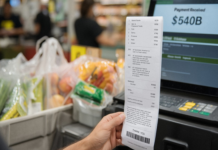Radio frequency identification (RFID) technology involves the use of electromagnetic fields to automatically identify and track tags attached to products. These tags are then used to create a digital identity for a product that can be used to track its life cycle.
Avery Dennison India provides brand owners with a host of RFID solutions to track and trace products and assist in anti-counterfeiting campaigns. “By creating unique digital identities, we have the potential to revolutionize the way we track and manage products throughout their life cycle that can help to decarbonize industry value chains,” Tirthankar Kshetrimayum, technical marketing lead RFID/AIDC, Avery Dennison Smartrac, told Packaging South Asia

RFIDs enable the monitoring of environmental performance through a product’s life cycle, keeping items in circularity longer and helping reduce waste. This, in turn, leads to more sustainable practices across industries, he said, adding that Avery Dennison Smartrac aims to enable companies to advance their transition to a circular economy using digital product identification technologies.
RFID technology offers numerous benefits for businesses, including cost reduction, improved inventory management, enhanced security, increased efficiency, and better customer service.
Several environmental factors strongly influence the energy harvesting capability of RFID tags. These include material, shape, composition, packaging size, temperature, humidity and even the contents inside the packaging. High water content in food has been found to notably impact RF performance. “Most of these challenges have been overcome to an extent by designing specific antennas based on the intended applications but there is still room for improvement,” Kshetrimayum said.
Avery Dennison Smartrac has provided RFID solutions for a large global medical device company where brand protection and authentication are of paramount importance. Grupo Boticário, one of the 15 biggest beauty companies in the world, has implemented RFID at its stores, he said, adding Asahi Shuzo, the brewer of Dassai, one of Japan’s leading Sake brands, has implemented RFID solutions.
RFID technology provides each item with a unique, traceable identity from production to consumer, securing the distribution channel against counterfeit infiltration, which helps garner consumer trust, Kshetrimayum explained.
The need for supply chain visibility and transparency in the pharmaceutical industry has increased tremendously, he explained, adding there is a huge potential for RFID in the pharma supply chain. At present, Avery Dennison Smartrac is working with two large local pharma companies to implement RFID, he said.
“At Avery Dennison Smartrac, we are committed to helping our customers achieve their sustainability objectives, as well as our own. This includes developing RFID inlays and labels with an ultra-low carbon footprint, made using recyclable materials, and delivering entirely plastic-free solutions. Our Pure Line RFID inlays and labels are circular-ready. Made using ultra-low carbon footprint processes, they are 95% or 100% plastic-free and recyclable at end of life when attached or embedded on paper and cardboard items,” Kshetrimayum said about Avery Dennison’s RFID solutions for the Indian subcontinent.
On the future of RFID, he said, “RFID technology will continue to evolve and find new applications in various industries. Some potential future developments include improved RFID tags with longer read ranges, smaller sizes, and lower costs, as well as advancements in RFID reader technology.”
Additionally, the integration of RFID with other technologies such as IoT (Internet of Things) and AI could lead to innovative uses. RFID and barcodes will coexist for many years, although the former is likely to gradually replace the latter in some sectors, he concluded.











